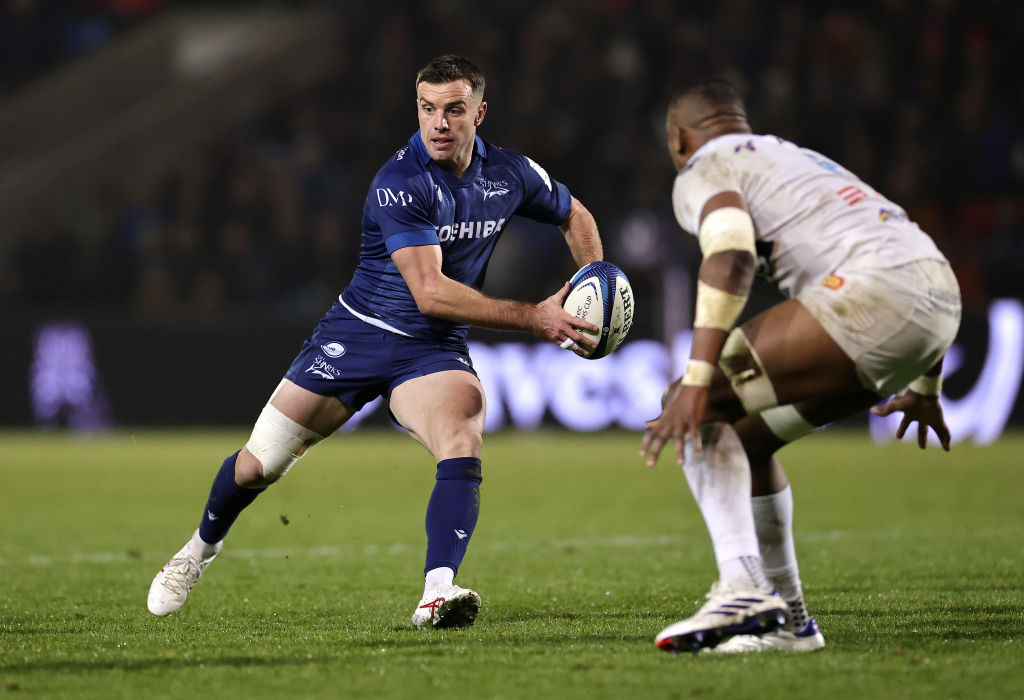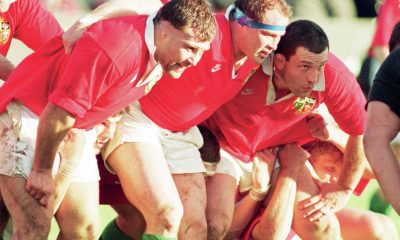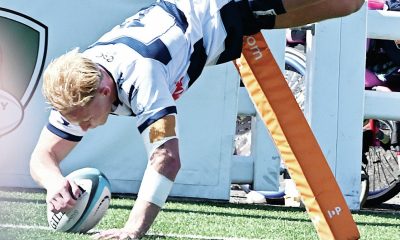 It’s just over a year ago that many observers were questioning the decision of the RFU to appoint a ‘nobody’ as temporary coach while looking for ‘Mr Right’ to take England back to the top. Can you remember the reaction when Stuart Lancaster was given the full time job?
It’s just over a year ago that many observers were questioning the decision of the RFU to appoint a ‘nobody’ as temporary coach while looking for ‘Mr Right’ to take England back to the top. Can you remember the reaction when Stuart Lancaster was given the full time job?
All the major papers questioned his qualifications stating that he had no international experience.
That has since subsided with the team’s steady progress as they have continued to defy all expectations and kept winning, while ‘the Lancaster effect’ is now being put down to his long term planning which is hailed as the reason for England’s success.
That planning (so we are told), gave him an ability to bring in a bevy of new players where previous coaches had not and it’s many of those new boys that have proved the decisive difference in the development of the squad.
Most of those who sought Lancaster’s replacement or at least an experienced guide to ‘oversee’ him have had to rethink and they are now extolling the virtues of his past experience while working with the RFU age grade and Saxons teams as the reasons why he was able to make those changes with such confidence – but I have another theory.
One aspect that haunts any new coach appointed by a Union is the success or failure of his predecessor and the team he has left behind.
Whether Geoff Cooke’s legacy to Jack Rowell’s or Sir Clive Woodard’s to Andy Robinson, the squads remained roughly the same under each, as it is a very brave man that breaks up a successful side, even if most of those players who have in the past performed miracles for their country, are now past their sell-by date.
In my opinion, a major advantage that Lancaster had was not long term planning as many have speculated, although he might have had a few speculative thoughts as to what he would do if he was in charge, as we all do down the pub with our mates, it was the fact that he did not have the job and therefore had nothing to lose.
He was and is, an employee of the Union who was initially asked to take the reins until someone else was appointed and then return to his previous role.
If, when he took over, he had not changed a player and the team followed the same progress as the current squad he would have still been offered the full-time role. Or, if having changed the players and the team failed to progress, he would have gone back to his old role within the Union once a new suitably ‘qualified’ coach was appointed.
In that sense, he was in the fortunate position of being in a ‘win win’ situation, whereby if he made changes and they succeeded he would be offered the role full-time but if not, no matter, as the players could be replaced by the new manager and he would return to his old job.
With a job guarantee no matter what, he was able to make the choices that, if an employed head coach made and were wrong, could have cost them their job.
Wholesale change in an established squad just doesn’t happen in a professional sport partly because it’s cheaper to get rid of a head coach than replace the players.
At international level it is more difficult to replace players that have experience and are part of a winning team, so usually the coach will choose to keep more players for longer as is the case with France at the moment. Philippe Saint-Andre’s insistence in keeping yesterday’s men has probably cost France a shot at this year’s Six Nations crown and while the French don’t have the distraction of the Lions, the next World Cup is moving closer and the time to make changes and blood new players is almost at an end.
As a player it is hard to know when to call it a day as you always feel that when you are dropped you can still do the job, and you probably can.
But sometimes it is necessary for a coach to make the hard choice, between keeping an experienced older player a year longer or giving youth the chance to grow into the position in time for the next World Cup.
Back in 1990 Paul Rendall was told by Geoff Cooke that he didn’t need to tour as he was the best loose head prop in the country and he was left at home while we toured Argentina.
During the tour a young prop got the chance to show what he could do after the two prospective Rendall replacements failed to perform.
He struggled at first but then came through a tough baptism in Test rugby to cement his place in the team even though at that time he was not as good as Rendall.
Cooke made the tough decision to drop Rendall who was regarded as the best lineout prop in the world but in doing so started one of the most illustrious careers in English rugby by picking Jason Leonard.

1 Comment
You must be logged in to post a comment Login
Leave a Reply
Cancel reply
Leave a Reply
You must be logged in to post a comment.

Latest News
George Skivington playing it smart at Gloucester

Latest News
English second tier gets rebrand


























Pingback: รับทำเว็บไซต์ WordPress